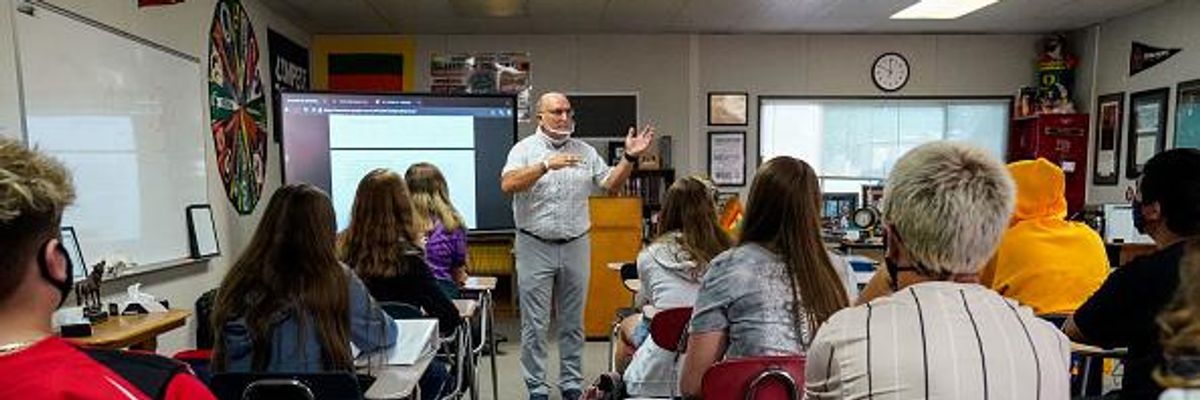While millions of students, teachers, and other staff return to school this week--many online but some for in-person learning despite coronavirus infection rates remaining at unsafe levels in their communities--it was revealed Tuesday that half a million children have been diagnosed with Covid-19, leading progressive advocates to ask: Where are the tests?
According to a new Rockefeller Foundation report (pdf) published Wednesday, "the U.S. may need up to 193 million coronavirus tests each month in order to safely reopen schools and fortify nursing homes." A minimum of 175 million tests would be required for teachers and students alone, the report notes.
Those figures are far higher than current testing capacity in the U.S., which the Covid Tracking Project estimates is 21 million tests per month.
"We've known since the start of the pandemic crisis that testing is critical for keeping the public safe. Sending kids back to school without adequate testing available for them or their younger family members is a recipe for disaster," said Kyle Herrig, president of watchdog group Accountable.US. "The public health crisis isn't over. Trump and his administration need to ensure that quick, affordable testing is available to everyone who needs it."
Unfortunately, according to reporting by the New York Times, it is especially challenging to obtain tests for children.
"Even in large cities with dozens of test sites, parents are driving long distances and calling multiple centers to track down one accepting children," the Times wrote. "The age policies at testing sites reflect a range of concerns, including differences in health insurance, medical privacy rules, holes in test approval, and fears of squirmy or shrieking children."
Now, with kids returning to school, the inadequate testing infrastructure for children is being described by some health policy experts as "a blind spot... interfering with school reopening plans and with efforts to understand" transmission of the virus.
In some districts where in-person learning resumed, coronavirus cases surged, causing temporary school closures. In Florida, the rapid spike in cases among school-age children provoked the state to order some counties to hide data from the public.
Several states have pushed for "in-person learning despite dangerously low testing rates and high instances of infection," Accountable.US notes.
According to the watchdog group's latest report (pdf), the federal government's failure to provide testing materials to states led to insufficient testing at the local level, undermining the Trump administration's demand that schools reopen for in-person learning.
The organization's tracking of the shortcomings of testing in the U.S. can be followed at WhereAreTheTests.com.
The authors of the Rockefeller Foundation report concluded by saying: "There is an urgent need for federal action to provide more clarity about testing protocols and testing needs, to provide reliable and predictable funding for screening tests, and on how to use the tests effectively in high-priority settings."
